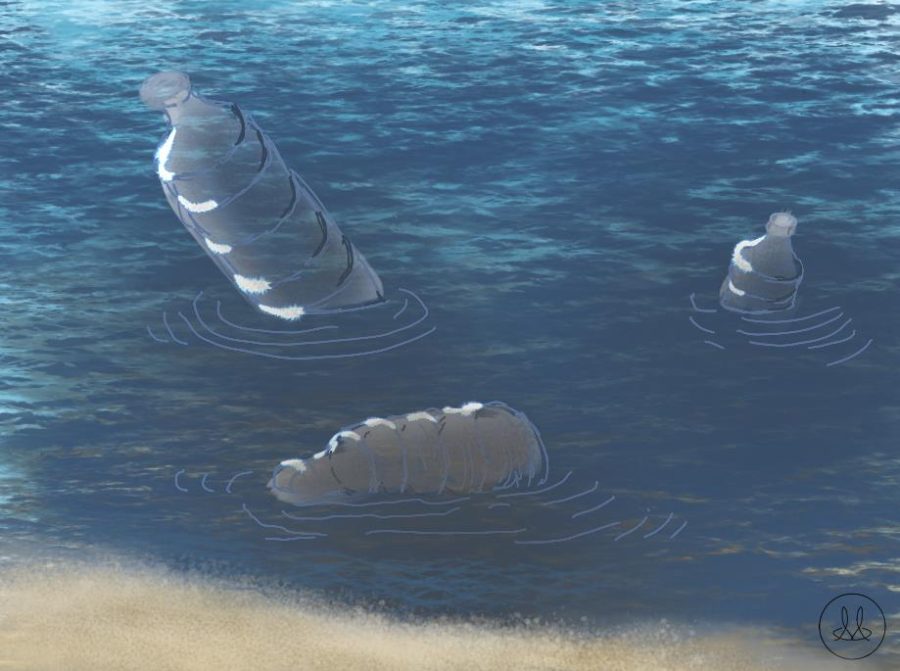Against Climate Change, Individual Action Counts
Every day on the news, it seems a new climate catastrophe is occurring somewhere in the world. From megadroughts and record-breaking temperatures to political discourse and doomsday reports from scientists, climate change has created confusion, hopelessness, and fear that plague newswatchers daily. Such scathing developments have created “climate anxiety” for many people, who experience a “sense of fear, worry or tension linked to climate change,” according to Mental Health UK (mentalhealth-uk.org). To placate this anxiety, like with many other fears, some have turned to coping mechanisms like distraction to not focus on the state of the climate. However, others have made active changes in their lives to reduce their ecological footprint, individuals who realize the gravity of their actions and their impacts on the earth. Which one sounds more productive? Well, making changes, of course. The act of adjusting one’s individual lifestyle will become essential in the fight against climate change; whether it be through choosing not to purchase fast fashion to protesting oil drilling on federal lands, everyone should make the choices to protect our future.
The average carbon footprint for one American is 16 tons. To put that into perspective, that is more than two adult male African elephants. However, the average carbon footprint globally is closer to four toms, meaning that the everyday American is contributing four times as much carbon than people in other parts of the world do. By analyzing the average individual’s carbon footprint, it becomes obvious how critical lifestyle choices are in footprint size, as the amount of carbon emitted per person varies significantly among countries. For instance, developing countries like Bangladesh have far lower emissions counts than industrialized countries like the U.S.; the average Bangladeshi emits a meager 0.47 tons per year, as stated by WorldoMeter. Much of this has to do with Bangladesh being a rather poor country, without nearly as much as the U.S. However, one does not need to be poor to reduce their individual footprint. In fact, due to the U.S.’ industrialized status, the country has more emission-limiting resources than most. Regardless whether one lives in a developing or an industrialized society, it is possible for individuals to adjust their lifestyles to reduce their environmental impact.
Examples of people making eco-minded changes to their lives are everywhere. Activist Greta Thunburg famously spent her Fridays outside the Swedish Parliament protesting for stronger climate action. Actress Jane Fonda vowed to never buy a piece of clothing again in 2019, while Shailene Woodley practices “foraging for food, sourcing her own water, and making her own cheese and soaps,” according to People magazine. While many of these individual actions go above and beyond, one does not need to become a celebrity climate activist to make changes in his/her life. Small, gradual changes can be added to someone’s routine, whether that is by opting to have the windows open on a warm summer day or by eating food in the back of the fridge before it goes bad. Those looking to make more of an impact should consider getting involved in the local community to advocate for action. Also, remember the right to vote: sometimes it only takes one person to change the tide of an election, so support candidates that will do right by the climate. A common phrase thrown around is “think globally, act locally” – an excellent perspective to assume when considering individual action.
Senior Allison Anemone views fighting climate change is a responsibility for all, as she believes it affects “every person in the present and in the future.” Junior Amelia Doyle expressed a similar sentiment: “If everyone makes a few small changes to their habits, it can make a huge overall impact.”. When asked what they thought would happen if every person in the world helped to protect the earth, both Anemone and Doyle touched on ideal scenarios. “At least 140 countries have formally planned to curb their emissions through 2030. If they follow through with their actions, global warming will be reduced. The world would get hotter, slower. Heat waves and flooding would occur less, wildlife would stop losing their habitats, and coral life would thrive,” Anemone said. Doyle added, “If everyone made efforts to protect the earth, we would see thriving ecosystems and it would really benefit everyone.”
The fight to protect the earth will be an uphill battle. However, if all individuals make the right choices to save the planet, the results will be incredible. When united, the world is strong. Divided, it is weak.

Hey you! Thanks for checking out my profile. I am a member of the Class of 2024 and a storyteller at heart. I love to spend time with my family and friends,...


















